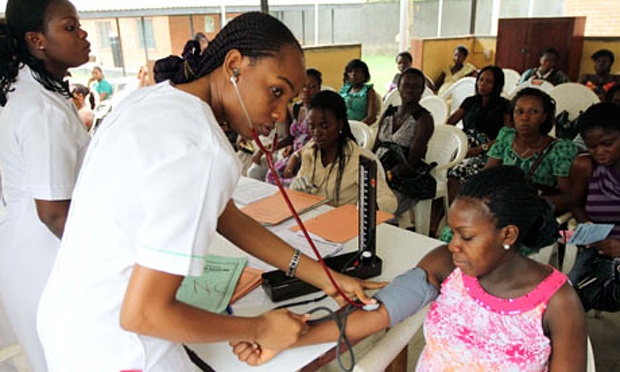Propelled by government reforms, digital innovation and shifting public health priorities, Nigeria’s healthcare system is gradually evolving towards improved access and quality of service.
Although deep-rooted challenges—such as a deficit of specialists and labour strikes—remain, this year has revealed several defining trends that point at where the sector is headed.
Renewed focus on primary health care
At the centre of the government reforms is the revitalisation of primary health care (PHC). In 2025, the government has ramped up action to rehabilitate thousands of primary health centres, equip them and deploy additional frontline workers.
This push is part of the National Health Sector Renewal Investment Initiative, which aims to guarantee that every ward in the country has at least one functional PHC facility.
The renewed investment was followed with efforts to increase skilled birth attendance, expand immunisation and improve maternal and child health outcomes.
While implementation is uneven across states, the renewed emphasis on PHC is gradually strengthening the first point of care in many communities.
Improved health insurance
The push toward universal health coverage gained momentum this year. The National Health Insurance Authority (NHIA) intensified enrolment campaigns in a bid to lower the steep out-of-pocket spending that continues to impoverish millions of Nigerian households each year.
Domestic financing has also become more central. As donor support declines, Nigeria is relying more on local funding sources—particularly the Basic Health Care Provision Fund—to sustain PHC, routine immunisation and human resources for health.
Advances in telemedicine
Digital healthcare has expanded from the margins to the mainstream in 2025. Mobile health apps and AI-enabled diagnostics have all recorded significant adoption among hospitals and health startups.
For millions of Nigerians—especially in underserved communities—telemedicine has become an entry point to healthcare where physical infrastructure is constrained.
Startups offering remote consultations and digital pharmacies are extending their footprints. Hospitals are also increasingly investing in electronic health records to reduce inconsistencies and improve data reporting.
Disease prevention and preparedness
Preventive health took on greater significance in 2025, especially following lessons from COVID-19 and recurring outbreaks. The Nigeria Centre for Disease Control and Prevention (NCDC) increased its surveillance activities, strengthened laboratory networks and supported states in outbreak detection and response.
Routine immunisation improved in several regions, supported by investments in cold-chain systems and better vaccine distribution.
The rollout of vaccines such as HPV and malaria gained attention, while lassa fever preparedness returned to focus with renewed research and trial activities.
At the community level, health education campaigns and behaviour-change communication contributed to a growing culture of preventive health, particularly in cities where wellness, fitness and lifestyle medicine are becoming more popular.
Growth of local pharmaceutical production
Another key trend in 2025 was the renewed push for pharmaceutical self-reliance. The government introduced incentives—such as lifting import duties on certain equipment and supporting local manufacturers—to boost the production of essential medicines and diagnostics.
This momentum was driven by the desire to reduce dependency on imports, strengthen supply-chain resilience and promote national security in healthcare.
Notwithstanding challenges like high production costs and regulatory bottlenecks, the trend shows that Nigeria wants to produce a larger share of what it consumes.
The journey so far
The year 2025 marked a period of both progress and persistent challenges in Nigeria’s health sector. The sector is laying the groundwork for a more equitable and resilient system with reforms focused on primary healthcare renewal, digital transformation, healthcare financing expansion and infrastructure upgrades.
However, long-standing issues—such as workforce shortages, fragmented financing and regional inequalities—show that the country still has a mountain to climb.
Overall, the trends of 2025 portray an evolving sector where quality healthcare is becoming within reach for all Nigerians
Summary not available at this time.






